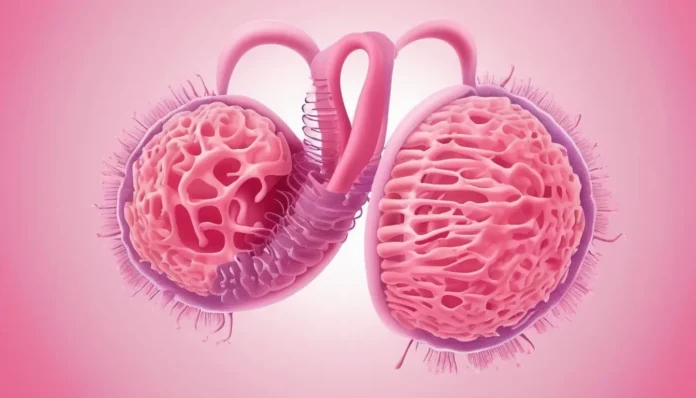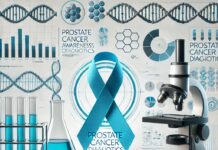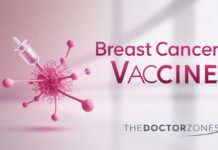Does Arizona Have Breast Cancer
Yes, Arizona has breast cancer cases, like many other states. Breast cancer is a significant public health concern in Arizona, with thousands of women diagnosed each year. The state offers various resources for prevention, screening, and treatment, including awareness programs and access to healthcare services. Early detection through regular screenings is emphasized to improve treatment outcomes and survival rates. Also Read about How to Treat Breast Cancer with Hyperthermia in Dogs
Overview of Breast Cancer
Breast cancer occurs when cells in the breast begin to grow uncontrollably. It can affect both men and women, but it is more prevalent among women. In the U.S., breast cancer is one of the most common cancers diagnosed and is a leading cause of cancer death among women. Understanding its impact is crucial, especially in specific regions like Arizona.
Also, Check Do Parasites Cause Breast Cancer? Step By Step
Breast Cancer Statistics in Arizona
Breast cancer statistics reveal crucial information about its prevalence and impact.
Prevalence
- Incidence Rate: According to recent data, Arizona has a breast cancer incidence rate of approximately 130 cases per 100,000 women.
- Survival Rates: The five-year survival rate for breast cancer patients in Arizona is around 90%, which reflects the advancements in treatment and early detection.
Age Demographics
- The majority of breast cancer cases are diagnosed in women aged 55 and older. However, there is a notable increase in cases among younger women in their 30s and 40s. Read about Breast Cancer Vaccine: A Promising Future in Cancer Prevention
Risk Factors for Breast Cancer
Understanding the risk factors associated with breast cancer can help individuals make informed decisions regarding their health.
- Genetics: Family history plays a significant role in breast cancer risk. Women with close relatives who have had breast cancer are at a higher risk.
- Lifestyle Choices: Factors such as smoking, excessive alcohol consumption, and a sedentary lifestyle can increase the risk.
- Hormonal Factors: Prolonged exposure to estrogen, either through hormonal therapy or early menstruation and late menopause, can elevate the risk.
- Radiation Exposure: Previous radiation therapy to the head, neck, or chest increases breast cancer risk.
Also, Discover more Can You Get Disability for Breast Cancer?
Importance of Early Detection
Early detection is vital for improving breast cancer survival rates. Regular screenings can help identify cancer at its earliest and most treatable stages.
Recommended Screening Guidelines
- Mammograms: Women should begin yearly mammograms at age 40, or earlier if they have a family history of breast cancer.
- Self-Exams: Performing regular breast self-exams can help women detect any unusual changes in their breasts.
- Clinical Exams: Annual clinical breast exams by a healthcare provider are recommended for women over 40.
Breast Cancer Treatment Options in Arizona

Arizona offers various treatment options for breast cancer patients, tailored to the individual’s needs and the cancer’s stage.
Common Treatment Modalities
- Surgery: Options include lumpectomy (removing the tumor) and mastectomy (removing one or both breasts).
- Radiation Therapy: Used post-surgery to eliminate remaining cancer cells.
- Chemotherapy: Often recommended before or after surgery to shrink tumors or prevent recurrence.
- Hormonal Therapy: For cancers sensitive to hormones, medications can block hormone effects.
- Targeted Therapy: Focuses on specific characteristics of cancer cells to block their growth.
Support Services for Breast Cancer Patients
Support systems play a crucial role in helping individuals navigate their cancer journey. In Arizona, several organizations provide resources for patients and their families.
Local Support Groups
- Breast Cancer Support Groups: Many local hospitals and community centers host support groups for patients and survivors to share experiences and advice.
- Counseling Services: Professional counseling can help patients cope with the emotional impact of a cancer diagnosis.
Educational Resources
- Workshops and Seminars: Regularly scheduled events provide information on treatment options, nutritional support, and coping strategies.
- Online Resources: Websites and forums offer a wealth of patient information and support networks.
Community Outreach and Awareness Programs
Raising awareness about breast cancer is essential for prevention and early detection. Various initiatives in Arizona aim to educate the public.
Breast Cancer Awareness Month
October is recognized as Breast Cancer Awareness Month, with numerous activities and campaigns designed to increase awareness and funds for research. Events include:
- Walks and Races: Community events that promote physical activity and raise funds for breast cancer research.
- Health Fairs: Local health fairs often include free mammogram screenings and informational booths on breast health.
Educational Campaigns
Community organizations and hospitals frequently launch educational campaigns targeting specific demographics, especially young women, to encourage self-exams and regular screenings.
The Role of Research and Innovation
Ongoing research is crucial for improving treatment options and outcomes for breast cancer patients. Arizona is home to several research initiatives focused on breast cancer.
Clinical Trials
Many hospitals and cancer centers in Arizona conduct clinical trials to test new treatments and therapies. Patients can participate in these trials, accessing cutting-edge therapies that may not be widely available.
Funding for Research
State and federal grants support breast cancer research in Arizona. Organizations such as the Arizona Breast Cancer Coalition actively seek to fund innovative research projects.
Conclusion
Breast cancer remains a critical health issue in Arizona, affecting many lives each year. Understanding the statistics, risk factors, treatment options, and available support services can empower individuals to take charge of their health. Early detection through regular screenings and awareness initiatives plays a vital role in improving outcomes for breast cancer patients.
If you or a loved one is facing a breast cancer diagnosis, it’s essential to reach out to healthcare providers for guidance, support, and treatment options. Together, we can raise awareness and fight against breast cancer in Arizona.
FAQs
1. What are the common symptoms of breast cancer?
Common symptoms include lumps in the breast or underarm, changes in breast shape or size, and unusual discharge from the nipple. Early detection through self-exams can help identify these signs.
2. How can I reduce my risk of breast cancer?
To reduce the risk, maintain a healthy weight, exercise regularly, limit alcohol intake, and avoid smoking. Genetic factors should also be considered, especially if there is a family history of breast cancer.
3. What are the screening guidelines for breast cancer in Arizona?
Women should start annual mammograms at age 40 and perform monthly self-exams. Those with a family history may need to begin screenings earlier.
4. Where can I find breast cancer support groups in Arizona?
Support groups can be found at local hospitals, community health centers, and organizations like the American Cancer Society. These groups provide emotional support and resources for patients and survivors.
5. Are there clinical trials for breast cancer treatments in Arizona?
Yes, several cancer centers in Arizona offer clinical trials for new breast cancer treatments. Participating in these trials can provide access to innovative therapies and contribute to ongoing research.








